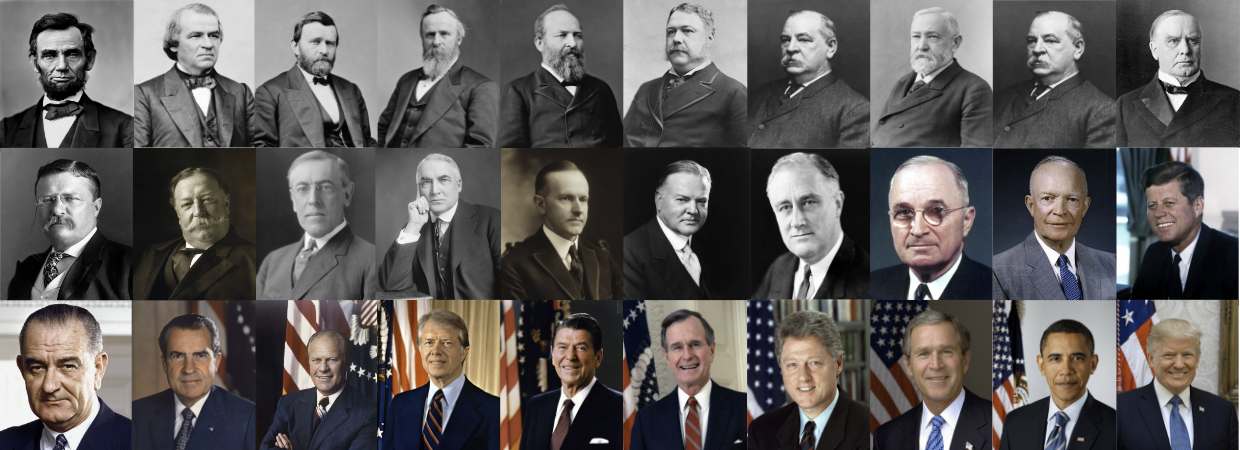
Season Three: The Bully Pulpit
Welcome to The Past, The Promise, The Presidency, Season Three: The Bully Pulpit. The president has a unique position in American society: a one-of-a-kind pulpit from which they speak. And presidents have consistently used their pulpit to address a wide range of issues - from foreign policy to healthcare.
Each episode of this season will address how different presidents have used their bully pulpit to influence American culture and policy, and how the congregation of Americans responded.
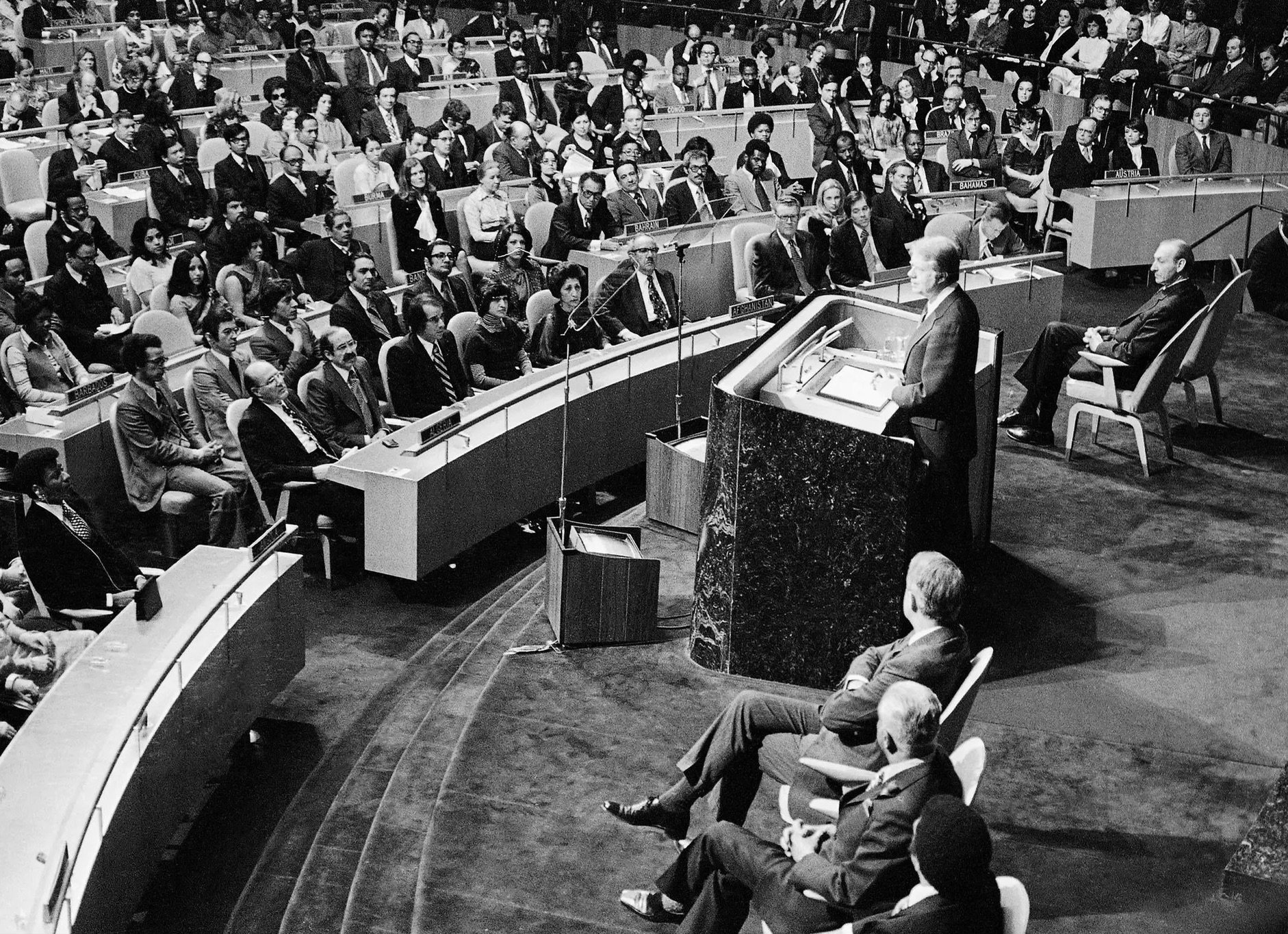
46. Season III, Episode VIII: Bully Pulpits Abroad
This is the eighth and final episode of Season Three: The Bully Pulpit. This season, we explored many domestic policy issues, such as healthcare, women's suffrage, and land rights. But here in the 21st century, we all know that the president's voice reaches far beyond the borders of the United States. Has it always been this way? And how does the bully pulpit reach audiences abroad?
We invited three scholars to help us understand the many ways presidents have utilized the bully pulpit to speak to the world. We'll begin our conversation with Dr. Jay Sexton, Professor of History at the University of Missouri. Dr. Sexton explains how presidents thought about foreign policy and the bully pulpit in the 19th century, and how that all changed when Teddy Roosevelt took office.
We then move to the presidents of the World War II era with Dr. Kaete O'Connell. A former fellow with us at the SMU Center for Presidential History, Dr. O’Connell is now a fellow at Yale university. She explains how WWII ushered in a new era in presidential communications abroad.
Finally, we invited Dr. Sam Lebovic of George Mason University to share his fascinating insights on how the US Government expanded the use of the bully pulpit to include a much more complex, bureaucratic, and powerful web of communication that spanned the globe. We promise you'll never think of passports the same way again.
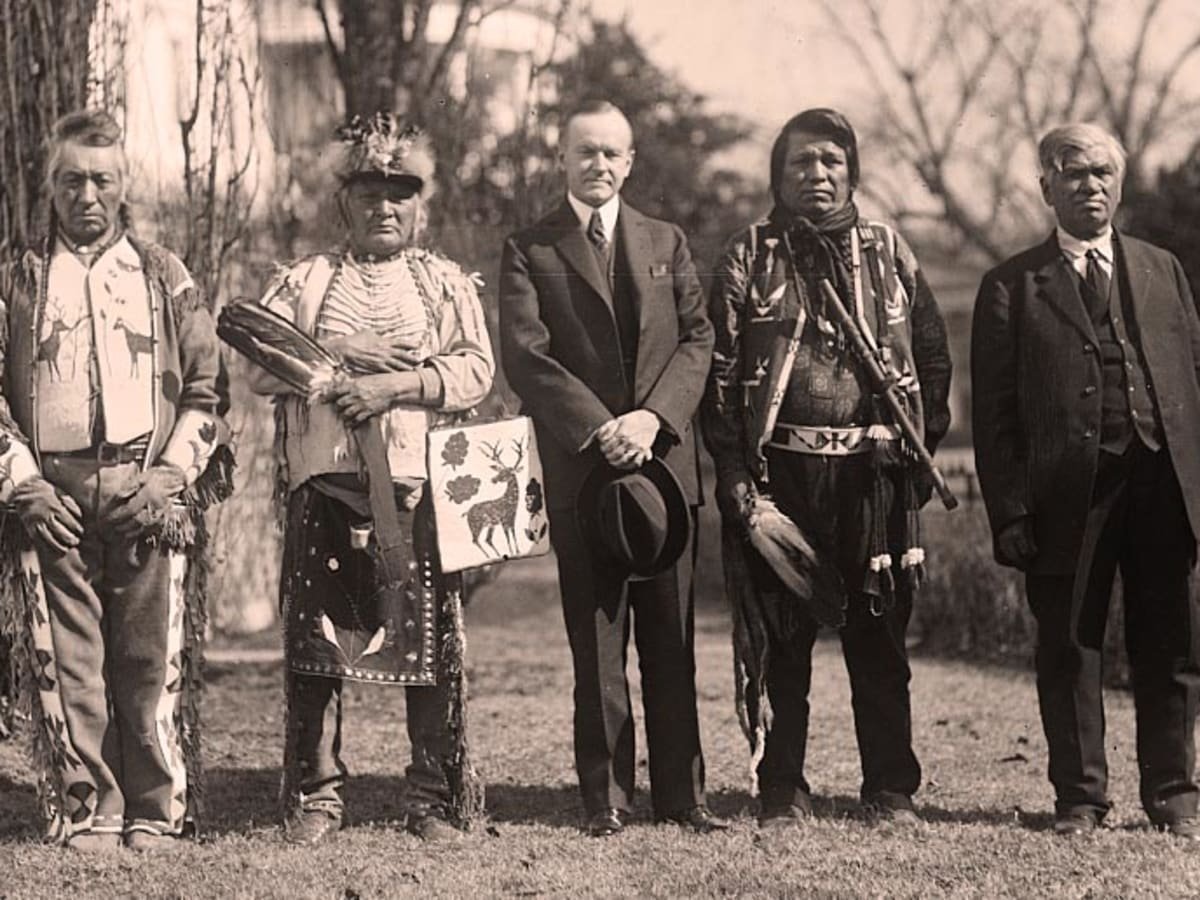
45. Season III, Episode VII: Native Sovereignty and Native Removal
In March of 2021, Deb Haaland, a member of New Mexico's Laguna Pueblo, became the first Native American Cabinet Secretary in US history. It was was a truly historic first, as Deb Haaland is part of a long history of Indigenous peoples that predates the United States as a nation. And today, we are going to explore the relationship between Indigenous peoples of America and the United States Government.
When the United States became an independent nation in 1776, a new era began, one of constant conflict. Native peoples claimed sovereignty over land and resources across the continent, while the US Government often called for the removal of Native peoples from those lands.
To help us understand this history, we turned to two expert guests. First, we spoke to Dr. Christina Snyder, a professor of history at Penn State University. Dr. Snyder sets the scenes for us by exploring Native sovereignty in the earliest years of the United States. Dr. Snyder also takes us through the most infamous period of Native removal in US History, the era of Andrew Jackson.
To understand how the relationship between Native peoples and the US Government changed in the 20th century, we turned to Dr. William Bauer. Dr. Bauer is a professor of history at the University of Nevada, Las Vegas and a citizen of the Round Valley Indian Tribes in Northern California.
Dr. Bauer explains the major changes that took place in US and Indigenous relations at the turn of the 20th Century, and he shares some remarkable stories and insight on struggles for Native sovereignty during the presidencies of Calvin Coolidge, Richard Nixon, and Barack Obama.

44. Season III, Episode VI: Environmental Protection
This week, we are going to be exploring the relationship between presidents, the bully pulpit, and environmental protection. When did presidents start thinking about federal use of land? When did that consideration change from an economic one based on maximizing profit and agricultural production for white settlers to something else?
We are going to tackle these questions and more on today's episode. First, we spoke with Dr. Mark David Spence, the author of Dispossessing the Wilderness: Indian Removal and the Making of National Parks, about the early history of presidents and land as a national resource. We talked about the role of national parks in the late 19th century and the complicated relationship between national parks and native peoples.
Next, we spoke with Dr. Megan Kate Nelson, the author of Saving Yellowstone: Exploration and Preservation in Reconstruction America. Nelson gave us a history of the first national park in the world, told us about the outsized impact of Theodore Roosevelt in the national park system, and discussed executive action on national parks today.
Finally, we spoke with Dr. Brooks Flippen, author of Nixon and the Environment, about Richard Nixon, environmental protection, and the creation of Earth Day. Brooks shares the really interesting political motivations behind Nixon's climate actions. You might be surprised to learn that climate change was once a bipartisan issue!

43. Season III, Episode V: Prohibition and the War on Drugs
In this episode of the Bully Pulpit, we explore presidential power as it relates to Prohibition and the War on Drugs. If you go looking through American history, it's not difficult to find conflict over alcohol and drugs, and the president's role in addressing them. The president of the United States has plenty to say, not just about what goes into our bodies, but about the industries, ecosystems, and societal consequences of those substances.
For some keen historical insight, we talked to two guests. First, we spoke to Dr. Mark Schrad, author of Smashing the Liquor Machine. Dr. Schrad set the scene for us at the turn of the 20th century, and provided some fascinating insight into the global history of prohibition. Then, we talked with Dr. Aileen Teague, an Assistant Professor at Texas A&M University. Dr. Teague explained how the War on Drugs became an animating part of presidential politics, especially during the presidencies of Richard Nixon and Ronald Reagan. Together, these two authors reveal how drug and alcohol policies are about more than just the substances. Rather, alcohol and drug policies reflect American's greatest fears in each historical moment.
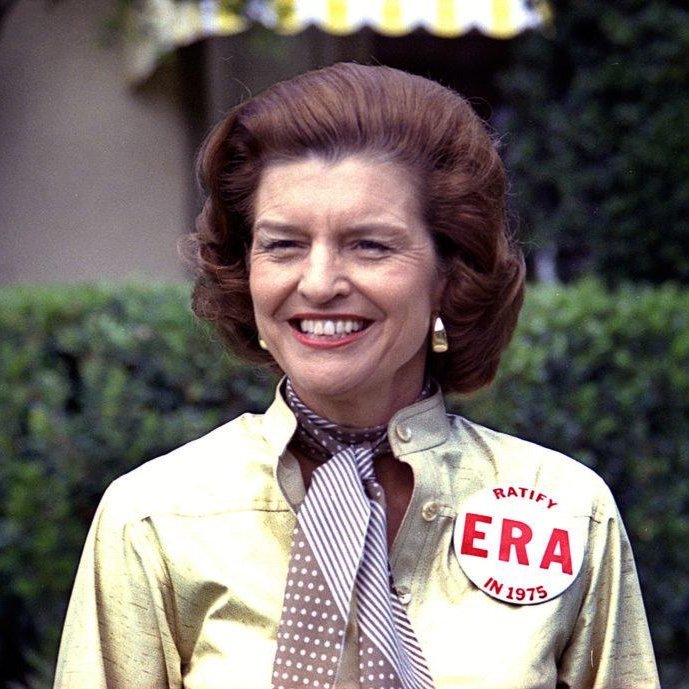
42. Season III, Episode IV: Women’s Suffrage and the ERA
This week, we are exploring women's suffrage, the Equal Rights Amendment, and how presidents have stymied or supported women's rights.
In 1776, Abigail Adams wrote to her husband and urged him to remember the ladies as he worked to craft a government for the new nation. But it wasn't until 1919 that Congress actually passed a constitutional amendment that prohibited denying voting rights on the basis of sex. And not until the 1960s did Congress pass legislation that applied civil rights to all people, regardless of race.
Even with this legislation, women regularly earned less than their male counterparts, were disadvantaged in divorce and property disputes, and were generally not treated equally under the law. Congress finally passed an Equal Rights Amendment in 1972, but not until 2020 did the requisite number of states ratify the amendment, and its legal status remains questionable.
This week, we have two fantastic guests to discuss the presidential politics of women’s rights. First, we spoke with Dr. Kimberly Hamlin about the women behind the women’s suffrage movement. We then spoke with Lisa McCubbin about the Equal Rights Amendment and First Lady Betty Ford's groundbreaking support for the amendment.

41. Season III, Episode III: Church & State
Today, we are covering two topics almost guaranteed to make that Thanksgiving dinner more awkward than it already was: religion and politics, or more specifically for this episode: Church and State.
If we're going to talk about a bully pulpit, then we've got to talk about the pulpit part of this equation. But we're also going there because the question of the relationship between church and state is as old as the country.
Thus, we begin this episode by examining George Washington and Thomas Jefferson’s major speeches, public proclamations, and even reading some of the president's mail. From these founding presidents, we get a strong sense of where this church and state conversation started. We then fast forward to the Cold War and the War on Terror, to consider how these conflicts caused Americans to ask familiar questions:
What is the relationship supposed to be between church and state? What is the difference between religious toleration and religious freedom? What role, if any, does the president play in shaping these ideas?
We are pleased to welcome Dr. John Fea to discuss the founding era with us. Dr. Fea is professor of American history at Messiah University. To learn about more recent religious history, we turned to Dr. Lauren Turek, Associate Professor of History at Trinity University.
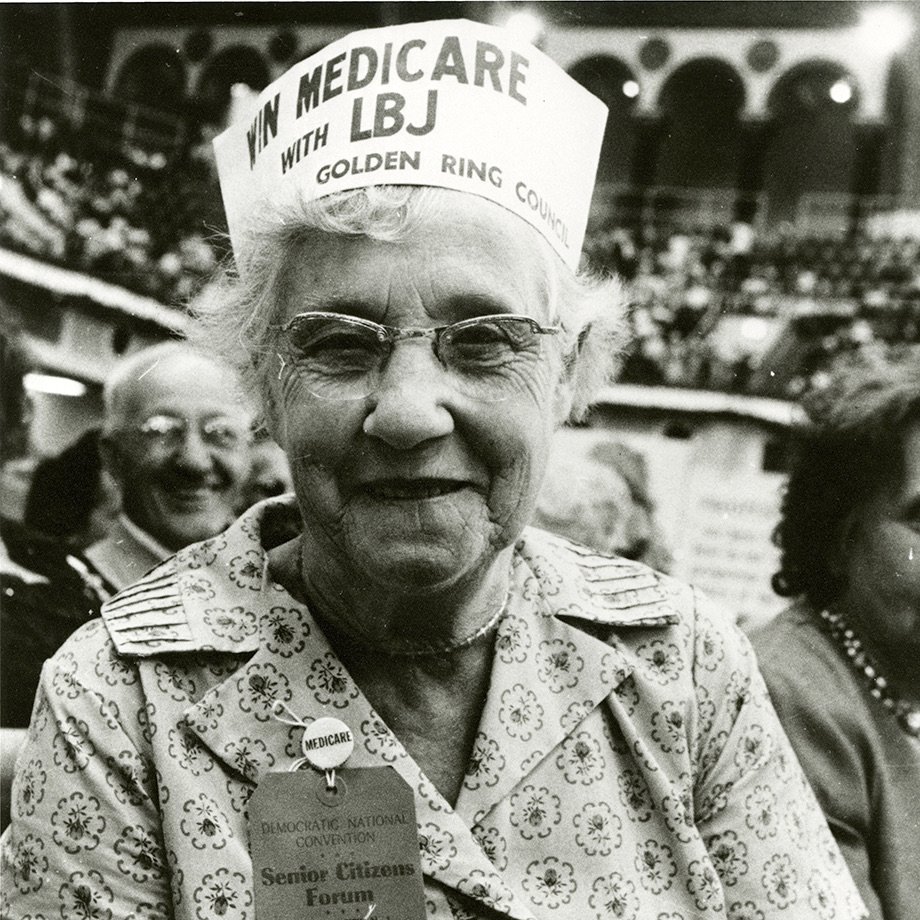
40. Season III, Episode II: Healthcare
This week, we are exploring the history of healthcare policy. Many presidents have tried to pass healthcare reform in America, but time and time again healthcare has tested the limitations and the strengths of the bully pulpit.
In today’s episode, we explored the history of the federal government’s interest in healthcare from the New Deal to Obamacare. We consider, why has healthcare reform been so tricky to implement? What role does the president play in passing healthcare reform? And, how has the pandemic shaped our ideas about healthcare, public health, and the presidency?
We spoke with two special guests. Professor Merlin Chowkwanyun is an assistant professor at the Columbia University School of Public Health. His new book, All Health Politics is Local: Battles for Community Health in the Mid-Century United States is available for preorder from UNC Press. Dr. Guian McKee is an Associate Professor in Presidential Studies at the Miller Center, where he works on the Presidential Recordings Project. He is also currently working on a book project that examines the rise of the health care economy in American cities after World War II.
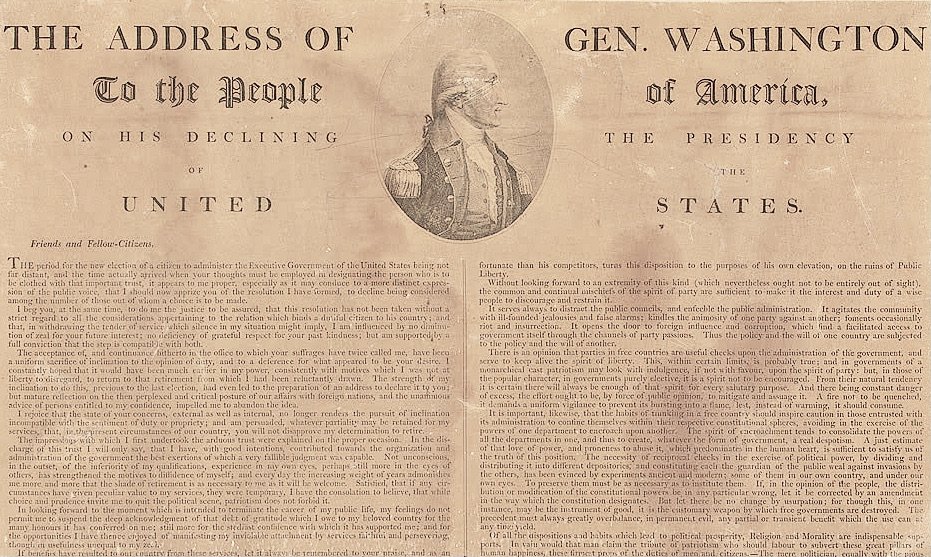
39. Season III, Episode I: The Big Speeches™
To kick off season three, The Bully Pulpit, we are starting with an episode on what we are affectionally calling The Big Speeches™. Moments when the president has used his unparalleled microphone and those words have left a major imprint on history.
We start where it all began, with George Washington. In September 1796, Washington printed an address to the American people and announced he would not seek a third term. Not only did Washington buck almost all political precedent, he also gave warnings and guidance to future generations.
Seventy years later, Abraham Lincoln took the oath of office for his second term and delivered a remarkable inaugural address. As the Civil War drew to a close, Lincoln mapped out his vision for the post-war United States and how to win the fight for peace.
Finally, the summer of 1979 was, as Jimmy Carter’s domestic policy advisor described it, the worst of times. There was an energy shortage, rampant inflation, and widespread unrest. But President Jimmy Carter took to the podium to address something much bigger than a gas shortage — a moral crisis in American life.
We have two excellent guests joining us today. John Avlon is a senior political analyst and fill-in anchor at CNN, appearing on New Day every morning. Dr. Meg Jacobs is a Research Scholar in the Princeton School of Public and International Affairs.
